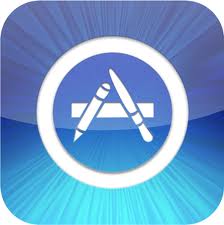Today I will introduce a new series of posts. One of my specialty areas is teaching English pronunciation. I had the great fortune of studying this under Dr. Wayne B. Dickerson at the University of Illinois. As part of his course, each student had to write a textbook review. This assignment taught me to describe, evaluate, and critique published pronunciation material. I find that most pronunciation materials are inadequate, so I have developed my own set of materials that I use.
I now teach a course in Teaching English Pronunciation. I ask my students to do a textbook review at the end of the course. As difficult as they find this assignment, they find that they have learned a great deal. Not only do they learn more about what is out there (they also present their review to the whole class), but they learn that they know how to identify inaccuracies in published materials and how to supplement materials.
Several of my conference presentations and a few of my published articles focus on reviewing textbooks (see my two articles in The Conference Proceedings of MIDTESOL: Cultivating Best Practices in ESL, 2012 and my article in As We Speak, TESOL SPLIS Newsletter). Last summer I had the idea of doing a review of apps for the iPhone and iPad that focus on learning English pronunciation. I submitted a conference abstract for the TESOL Convention in Toronto and it was accepted.
 I had no idea that this project would become so much bigger. It took me several hours just to search the iTunes App Store to find these apps. My iPhone showed 729 apps when I search “English pronunciation” and 119 apps for “English accent.” I exclude apps that were primarily dictionaries (several hundred) and those that were mainly phrasebooks or flashcards. After several hours I had catalogued more than 100 apps and downloaded just over 100 of them to my iPad, spending $175.61. Between now and the TESOL Convention March 20, I will be going through and cataloguing each of these apps (or as many as I can) for this presentation and for future publications.
I had no idea that this project would become so much bigger. It took me several hours just to search the iTunes App Store to find these apps. My iPhone showed 729 apps when I search “English pronunciation” and 119 apps for “English accent.” I exclude apps that were primarily dictionaries (several hundred) and those that were mainly phrasebooks or flashcards. After several hours I had catalogued more than 100 apps and downloaded just over 100 of them to my iPad, spending $175.61. Between now and the TESOL Convention March 20, I will be going through and cataloguing each of these apps (or as many as I can) for this presentation and for future publications.
Today I went through the first app and I found that to conduct a review takes longer than expected. I have decided to share these reviews on this blog because there is no possible way that I would ever share this level of detail in a conference presentation or article for publication. I will focus my presentations and articles on summaries, overviews, and implications. But for those of you who are fanatics of tedium when it comes to pronunciation training, I invite you to follow these postings.
For those who want to know my qualifications for this endeavor, I will provide them here. I have an MA in TESL from the University of Illinois. Prior to my MA, I completed a BA in Linguistics and a BA in Spanish. I entered my MA program with a strong background in linguistics, especially in phonetics and phonology (and I studied this topic in both the United States and Spain). I took a full course in teaching English pronunciation and during my three years of my MA program I taught pronunciation tutorials and classes every semester. By my third year I had the opportunity to train a new pronunciation instructor. While a Visiting Professor at the University of Barcelona I began developing my own materials for teaching English pronunciation. Washington University in St. Louis hired me because they needed a pronunciation specialist. I taught both Advanced Pronunciation I and Advanced Pronunciation II. I developed two full sets of course materials on pronunciation: one focused on consonants and vowels, the other on suprasegemental features. I now teach a course on how to teach English pronunciation and I regularly present on this topic at conferences and write articles about my research findings (currently focused on textbook reviews). I continue to read books and articles about how to describe and teach English pronunciation. These skills and expertise will be brought into my posts about these apps.
Before I begin these, I will start with a disclaimer that I do not represent any of these companies. At conferences I am often asked to recommend the “best pronunciation textbook,” which I refrain from doing. All texts have strengths and weaknesses. I anticipate that the same will be the case for these iPhone/iPad apps. My plan will be to describe, evaluate, and critique these apps. Through these postings I hope that English language learners and instructors may make a more educated decisions about which apps to download or to spend their money on.
If the developer of an app contacts me after reading one of my posts, I will direct him or her to this posting. If you are a developer reading this, I hope that my posting may help you with future versions of your app.
DJ Kaiser, PhD
djkaiser@webster.edu
All material Copyright (c) DJ Kaiser, 2015
